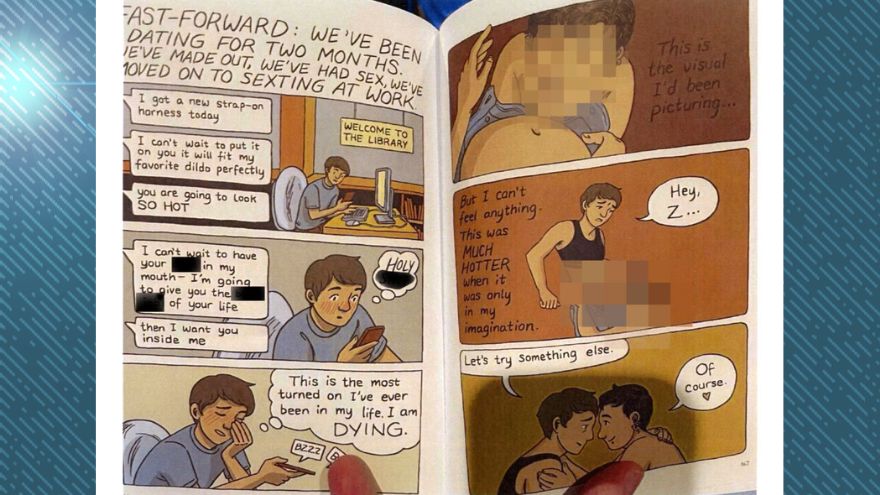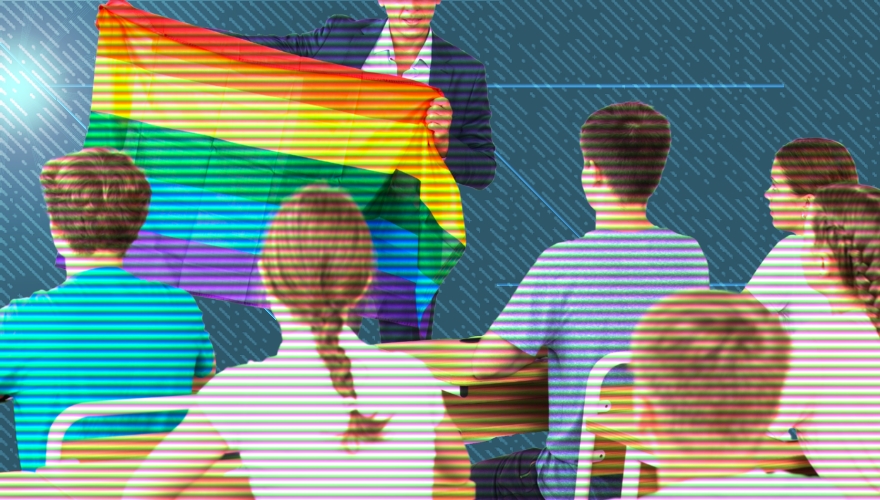The National Education Association (NEA), America's largest teachers union, added the controversial books Gender Queer and White Fragility to its “Great Summer Reads for Educators!” list.
The list, released last week, featured sections including "Books to Celebrate or Understand Juneteenth" and "Banned Books: Celebrate the Freedom to Read!"
"Twilight used to be at the top of banned-book lists for its racy content," the teacher's union wrote. "Today, those lists are much more likely to feature LGBTQ+ people or People of Color. Indeed, the top two books banned in 2022 were Gender Queer: A Memoir by Maira Kobabe, about identifying outside the gender binary, and All Boys Aren’t Blue: A Memoir-Manifesto by George M. Johnson."
Gender Queer has become the subject of heated debate over its graphic depictions of oral sex, gender identity, and masturbation — while being marketed and promoted for children.
Regarding White Fragility, a book that declares all Caucasian people are "racist," the union wrote that the book "explores why White people are so bad at talking about racism."
"If you’re a White person who doesn’t know how to talk about Juneteenth—or how to address more fundamental, but sometimes uncomfortable, topics around race and racism—check out Acho’s book, Uncomfortable Conversations with a Black Man, recommended by the Michigan Education Association’s (MEA) Center for Leadership and Learning," the union recommended. "(Another title used in MEA’s book studies for union members? White Fragility by Robin DiAngelo, which explores why White people are so bad at talking about racism.)"
The New York Post noted, "This list of books comes after the president of the National Education Association declared that racial and social justice is a 'Pillar of the NEA’s efforts.'"
“For us at the NEA, education justice must be about racial justice, it must be about social justice, it must be about climate justice. It must be about all of those things,” union president Becky Pringle said.
“For our students to be able to come to school ready to learn every day–We can never think of education as an isolated system because everything connects to our students’ ability to learn. So, we have to necessarily talk about housing justice, food inequality, and the reality that we all just went through a global pandemic together and of course it was the most marginalized communities that were already suffering from the inequities in every single social system in this country and every country.”
Michael Dowell, who says he used to be an NEA member, commented on the Post story saying, "Having been a teacher and member of the NEA for 22 years, I am ashamed of what the association advocates now. I left the profession in 1996 to pursue a business with my family. While I was a member, I usually felt the NEA was a good influence on education. However, if I was still in the teaching profession, I would not be able to tolerate many of the NEA's positions and advocacies. Generally, now, they are doing a disservice to their members and, more importantly, to their students."

